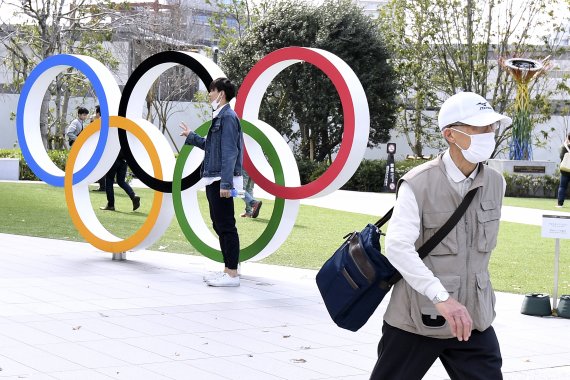
Postponing the Olympic Games from Tokyo to 2021 will cost between two and six billion euros. These - still very roughly calculated because of the historical uniqueness of the event - rough estimates are heard from experts from the International Olympic Committee (IOC) and the host country Japan.
A huge puzzle of more than 40,000 hotel rooms, 2,000 buses and thousands of individual contracts from the contract with the TV rights holders to the smallest supplier has to be put together anew. Not to mention the Olympic qualifications in the individual sports.
A huge challenge for the host country, the IOC, but also for the sports industry.
Nevertheless, former IOC Marketing Director Michael Payne believes that the 2021 Olympic Games could be perhaps the biggest in history: "After the difficult and dark times we are facing, the world will want to celebrate the survival of mankind. This crisis isolates us, so next year's Olympics could become a symbol of unity and dialogue".
Of course, the man who has made the Olympic movement a commercial success in recent years must spread such optimism. Also that IOC Sports Director Christophe Dubi points to the "unique advantages" of the proximity in time between the Tokyo Summer Olympic Games (23 July to 8 August 2021) and the Winter Olympics in Beijing (February 4 to 20, 2022), smells like PR talk.
However, at least among the big players in the sports industry, which has been hard hit by the global COVID 19 pandemic, the principle of hope has now also become established. "We are already looking forward to the sports summer of 2021," says Adidas spokesman Oliver Brüggen, for example. Before the Olympic Games in Japan, the European Football Championship is to take place one year later from June 11 to July 11, 2021.
And other traditional events that have been cancelled this year, such as the famous Wimbledon lawn tennis tournament, will hopefully be able to take place as usual.
The cancellation of the major sporting events in 2020 has so far not hit the major sporting goods companies extremely hard in purely financial terms. Adidas, for example, estimates that the losses caused by the cancellation of the Olympics and the European Championships "only" amount to 50 to 70 million euros, with annual group sales above the 20 billion euro mark. By way of comparison, in the first quarter of 2020 alone, the sales decline of the brand with the three stripes in China by Covid-19 is said to have been as high as one billion euros.
However, major sporting events are always a huge, worldwide stage on which the latest products from top companies can be presented. The world's largest sporting goods group, Nike, for example, as the supplier to the US team, wanted to focus on its collection of sustainable clothing and shoes made from recycled materials.
This will now disappear in 2020, but Nike CEP John Donahoe remains optimistic. Although sales of the number 1 in the world sports marketin the first quarter of business until February 29 in China by a total of four percent. In the same period, however, digital sales in the Middle Kingdom rose by 30 percent.
This gives hope that the corona virus will not take away people's appetite for sports products. In addition, China has long since started up again: at the peak of the Covid 19 pandemic, 75% of Nike stores there were closed in February, but almost all of them are now open again.
The industry is still a long way from this in western markets: sporting goods stores are closed in many countries. Adidas and Puma have announced short-time working in Germany and have withdrawn their business forecasts for the year. Finally, the interruption of the major football leagues, for example, has put the lucrative ideas for new jerseys for top clubs such as Bayern Munich on ice.
Even if 2020 is likely to make a dent in the economy, the omens for the great sports year 2021 are at least better. Nike boss Donahoe: "We are looking forward to seeing organized sport up and running again. If it does, we'll be there."
- Awards
- Mountain sports
- Bike
- Fitness
- Health
- ISPO Munich
- Running
- Brands
- Sustainability
- Olympia
- OutDoor
- Promotion
- Sports Business
- Textrends
- Triathlon
- Water sports
- Winter sports
- eSports
- SportsTech
- OutDoor by ISPO
- Heroes
- Transformation
- Sport Fashion
- Urban Culture
- Challenges of a CEO
- Trade fairs
- Sports
- Find the Balance
- Product reviews
- Newsletter Exclusive Area
- Magazine






